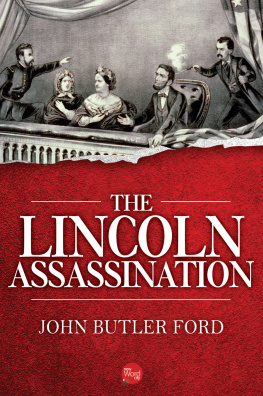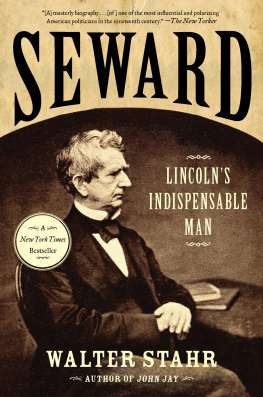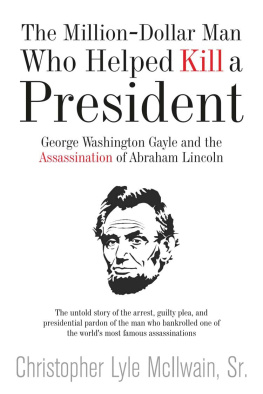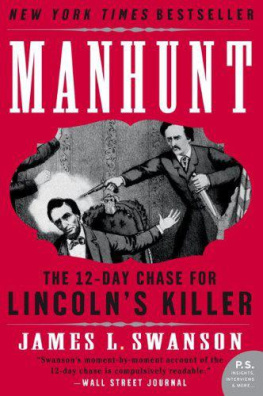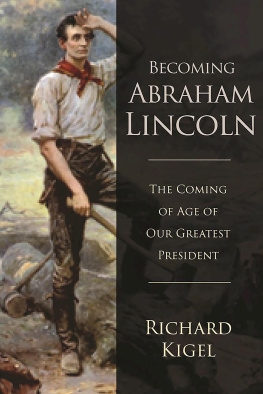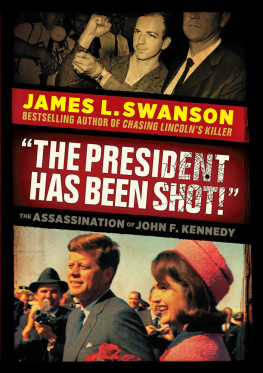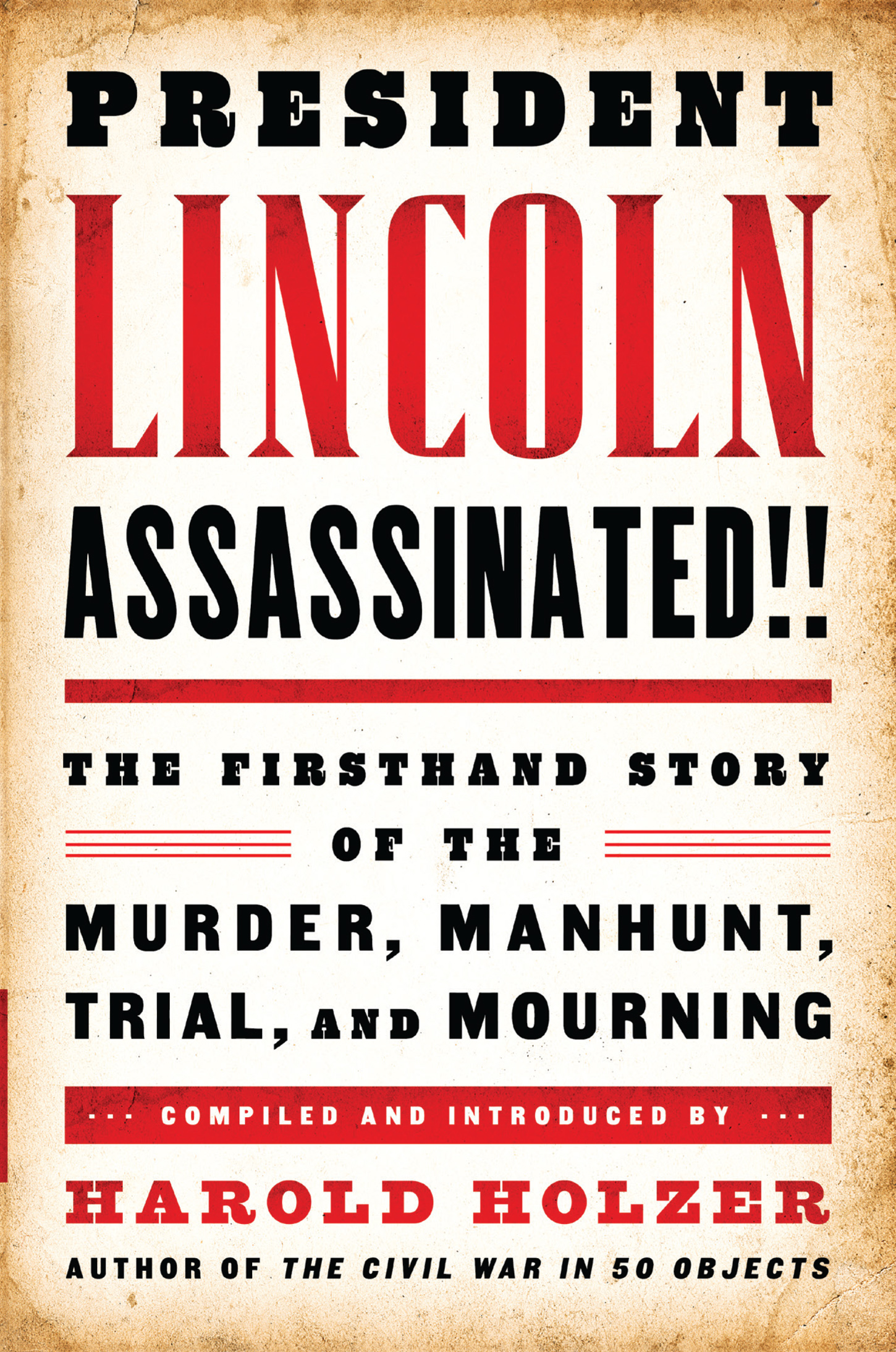Charles Carleton Coffin
Scenes in Richmond
Worn down by the pressures of Washington and eager to be at the front when the war ended, President Lincoln arrived at Ulysses S. Grants headquarters at City Point, Virginia, on March 24, 1865, for an extended visit. On April 2 Union troops ended a nine-month-long siege by breaking through the Confederate lines at Petersburg, forcing Robert E. Lee to retreat westward and Jefferson Davis to flee Richmond. As the Confederate government abandoned its capital, the citys military commander ordered the destruction of its tobacco and cotton stockpiles. The fires rapidly spread and devastated much of Richmond before Union forces arrived the next morning. When Lincoln telegraphed Edwin M. Stanton of his intention to visit Petersburg on April 3, he received a stern admonition from his secretary of war: Allow me respectfully to ask you to consider whether you ought to expose the Nation to the consequence of any disaster to yourself in the pursuit of a treacherous and dangerous Enemy like the rebel army. Hours later the President told Stanton that he planned to go to Richmond the next day, and added: I will take care of myself. The arrival in Richmond on April 4 of Lincoln and his twelve-year-old son, Thomas (Tad), was witnessed by Charles Carleton Coffin (18231896), who had been reporting on the war for the Boston Journal since 1861.

RICHMOND, April 4, 1865.
To the Editor of The Boston Journal:
President Lincoln is in Richmond. The hated, despised, ridiculed, the brute, the beast, the baboon of the Yankee nation, as the Richmond editors have named him, is here, in the house from which Jeff. Davis fled in haste and terror on Sunday last! The thought sets ones brain in a whirl, and yet it is my business to write coolly of the great events now transpiring in this city. To write connectedly I will make simply a record of personal observations, taking up the narrative broken abruptly in my letter of yesterday by the departure of the mail messenger.
APPEARANCE OF THE CITY.
Language fails me in any attempt to describe correctly the appearance of the city as I passed through the streets this morning at an early hour. The ruins were still smoking. The fire was still flaming furiously in several places. The pavements were hot to my feet, so intense had been the flames. Granite columns, iron pillars, marble facings broken into thousands of pieces, with cart loads of bricks, blocked the streets. The firemen were still at work. One of the engineers stated that nearly a thousand buildings of all kinds had been burned. The Bank of Richmond, Bank of the Commonwealth, Traders Bank, Bank of Virginia, Farmers Bank, a score of private banking houses, the American Hotel, the Columbian Hotel, the Enquirer and the Dispatch printing offices, the Confederate Post Office Department, the State Court House, the Mechanics Institute, all the insurance offices, the Confederate War Department, the Confederate Arsenal, the Laboratory, Dr. Reads Presbyterian Church, several foundries and machine shops, the Henrico county Court House, the Danville and the Petersburg depots, the three bridges across the James, Haxalls great flouring mills (the largest in the world), all the best stores of the city, were destroyed. The Libby Prison was not burned. It still stands a monument of rebel cruelty and inhumanity. In vain were the protests of the citizens to General Ewell; he detailed men to set the fires. When the rebel authorities fired Charleston, negro troops from Massachusetts saved the city from utter destruction; and here Massachusetts, in common with other soldiers of the North, white and negro alike, threw down their guns and did what they could to save the city. General Devens division was the first to enter the city after Major Stevens with the cavalry detachment. He detailed soldiers to battle with the flames. Some mounted the roof of the Capitol, and others the Governors Mansion, and extinguished the flames, which were kindled again and again.
If it had not been for the soldiers the whole city would have been destroyed, was the remark of a Richmond citizen to-day. So the despised Yankees, the greasy mechanics and mudsills, became the saviors of their fond old city, which the leaders of the rebellion, who claim to be cavaliers, set on fire in their impotent rage. What cared they even if they made their best friends houseless and homeless and penniless? Jeff. Davis, Secretary Breckinridge, Gen. Lee and Gen. Ewell have been feasted by many families who to-day are poverty stricken, who have lost property, houses, lands, and all those who are in mourning for loved ones who have fallen on the battle field, through the insane ambition and malignant hate of those in whom they blindly trusted.
When the rebel rear guard left the city they broke open the stores; panes of window glass, which cost hundreds of dollars, were smashed without compunction; dry goods, boots, shoes, jewelry, everything was taken which pleased their fancy. Why should they not plunder after the example set them by their leaders?
The rebel soldiers are to be judged leniently. They have suffered privation and hardship, but their leaders have reveled in luxury, have had places of power, have plundered and robbed the nation, and with provident forethought have hundreds of thousands of dollars in London and Paris.
The poor people and negroes who have had hard work to keep soul and body together, improved the opportunity to help themselves to what was left. There was a grand rush to the stores. Some very ludicrous scenes. One negro had three Dutch ovens on his head, piled one above another, a stew pan in one hand and a skillet in another. Women had bags of flour in their arms, baskets of salt and pails of molasses, or sides of bacon. No miser ever gloated over his gold so eagerly as they over their supply of provisions. They had all but starved, but now they could eat till satisfied.
VISIT TO THE CAPITOL.
The Capitol square was full of furniture, beds, bedding, barrels, baskets, pots, kettles, pianos, sofas, looking glasses, crockery, and hundreds of women and children who had passed the night in the open air, among the soldiers of Gen. Devens division, who cheerfully shared with them their rations.
The capitol outside and in, like the Confederacy, is exceedingly dilapidated. The windows are broken, the carpets faded, the paint dingy, the desks rickety. The members of the Legislature had left their letters and papers behind. Gen. Weitzel was in the Senate Chamber issuing his orders. Gen. Shepley, Military Governor, was also there; also Gen. Devens.
ADMIRAL FARRAGUT.
The door opened and a smooth faced man with a keen eye, firm, quick, resolute step entered. He wore a plain blue blouse with three stars on the collar. It was the old hero who opened the way to New Orleans, and who fought the battle of the Mobile forts from the mast head of his vesselAdmiral Farragut. He was accompanied by Gen. Gordon of Massachusetts, now commanding the Department of Norfolk. They heard the news yesterday noon and made all haste up the James, landing at Varina and taking horses to the city. It was a pleasure to take the brave Admirals hand, and answer his eager questions as to what Grant had done. Being latest of all present from Petersburg I could give him the desired information. Thank God, it is about over, said he, meaning the rebellion.


